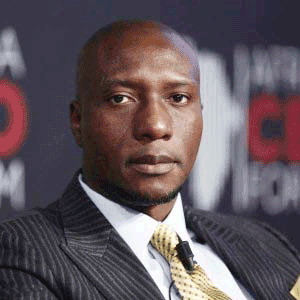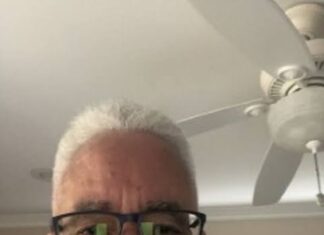Operators have called on local institutions with financial muscle to rescue the Nigerian Stock Exchange (NSE) warning that the bearish mood in the market portends grave danger.
Share prices are on a free fall.

Oscar Onyema
After losing N2.2 trillion in turbulent trades last year, the equities market has maintained jet-landing position since the new year, with investors losing another N1.6 trillion year-to-date so far.
Aggregate market value of shares of companies listed on the NSE stood at N9.917 as at Tuesday, January 20 as against the opening value of N11.478 trillion, a loss of N1.561trillion.
The NSE All Share Index, a value-based index that tracks prices of all quoted equities and also doubles as country index for Nigeria, stood at 29, 819.39 down from 34, 657.15 representing a decline of about 14 per cent.
Stakeholders advocate practical steps
The Chartered Institute of Stockbrokers (CIS), Association of Stockbroking Houses of Nigeria (ASHON) and Association of Issuing Houses of Nigeria (AIHN) are mulling practical strategies to save the market from sell off shocks by foreign investors.
They explained to leaders of capital market operators at a meeting that the depressed state of the market was caused by massive sell off of shares by foreign investors who accounted for about 57 per cent of transactions in 2014.
They argued that the dominance of foreign investors in the market is counterproductive, and urged local institutions with investible funds to consider the bottom-out prices of stocks as opportunity to get a slice of the market.
ASHON
ASHON President, Emeka Madubuike, explained that while the large presence of foreign investors signifies a strong attraction to the country, their sudden reversal also portends great danger with the bearish mode now witnessed.
Said he: “At present, virtually all stocks on the [NSE] are undervalued despite strong fundamentals. The primary reason for the depressed state of the market was believed to be due to sell down by foreign investors who account for about 57 per cent of market transactions in 2014.
“While the large presence of foreign investors in our market signifies strong attraction to the country and our market, since these are hot monies, their sudden reversal also portends great danger for the market as seen in the second half of 2014 up till now when the market began the bearish mode.
“We particularly implore the Pension Fund Administrators (PFAs) to lead the vanguard of this investment opportunity by increasing their stakes in the equities market.
“Strong institutions like the Asset Management Company of Nigeria (AMCON), Nigerian Deposit Insurance Commission (NDIC), the Sovereign Wealth Fund (SWF), and other local investors should equally see the trend as potential opportunity to take position in the Nigerian capital market.”
CIS
CIS President, Albert Okumagba, urged the government to promote a culture of savings through incentives like divestment of government holdings in privatised companies, tax free interest, and creation of Real Estate Investment Trusts (REITs).
He suggested a policy where the interest on the first N1 million of savings is tax free to encourage investors to put their funds in savings account.
In his view, the government should divest holdings in the privatised companies to mobilise funds and encourage private sector operators to develop the economy while government provides enabling environment.
Okumagba urged Abuja to divest at least 20 least holdings in power companies to investing public preparatory to listing the shares on a stock exchange.
“In addition, in order to solve the perennial housing problem, more REITs should be created as a matter of urgency to boost investment in the real estate sector.”
AIHN
AIHN President, Victor Ogiemwonyi, faulted the Central Bank of Nigeria (CBN) for defending the naira with foreign exchange (forex) reserves.
“Since the value of the foreign reserve essentially determines the country’s capacity to borrow internationally and to support our international trade, the continuous hemorrhaging of the reserves is not in the best interest of the country,” Ogiemwonyi warned.
He argued that though naira devaluation may prevent round-tripping and protect local industries, the CBN need not over-protect the value and make it artificial.
He urged that the currency be allowed a wider band and leave the market forces to determine naira value in relation to exchange rate.
“We believe that the currency should be allowed a wider band, say up to N200 to the dollar. The CBN may need to intervene if the new band is breached. We believe that at N200, it would become unattractive for speculators to engage in any profitable business that requires hard currency.
“While imports could become more expensive, we believe that it portends significant opportunity for consumers to consider local substitutes. A wider exchange rate band may also help exports as local producers earn more from their exports.
Warning from JPMorgan
While the key policies introduced by the CBN to check exchange rate volatility might be effective, Ogiemwonyi noted, they also affect the liquidity of the currency. The recent threat by JPMorgan to remove Nigeria from the Emerging Market Government Bond Index highlights the current pressure on the naira, he added.













